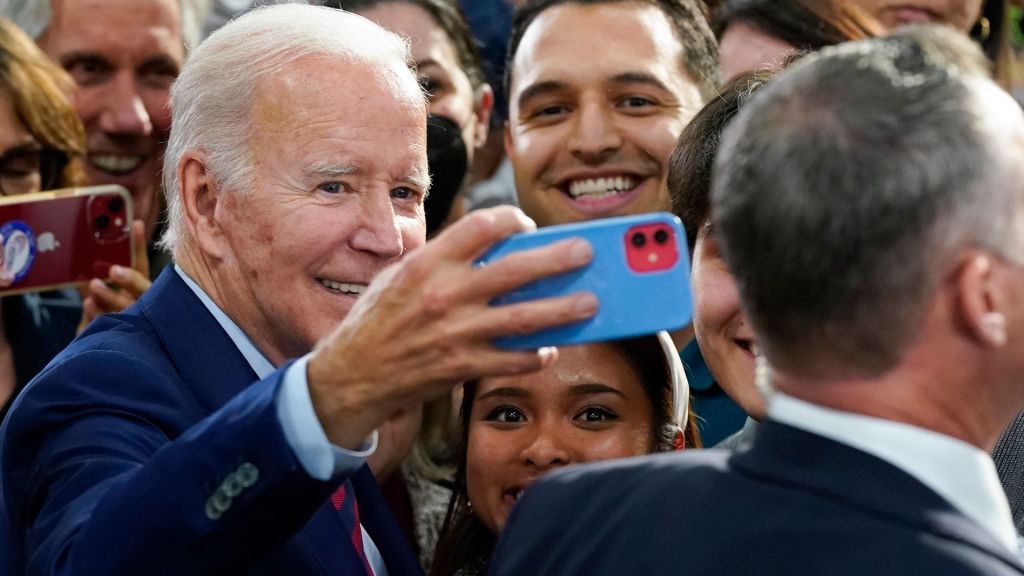
Commentary
-
Our commentary partners will help you reach your own conclusions on complex topics.
Hey everyone. Peter Zeihan here, coming to you from Colorado. Today, I wanted to answer a couple of questions that folks had, mainly why I’m so confident that de-globalization is past the point of return.
The idea is that if the United States has benefited from globalization for so long, why even if it was in danger, wouldn’t us just kind of double down.
Three things. First, you got to look at why the United States did this in the first place. Globalization was never about the economics for the United States, or at least, not about the economics in a traditional sense.
The United States had the world’s largest economy long before World War Two. And with the war, we found all of our potential rivals, cooperation nations, friends, allies, enemies, everybody put together had an economy that was about the same size as the United States, and economic growth was hard to come by, economic security was impossible. And a big part of what led to that was competition over resources, over lands, over security, basically, all of the things that have colored human history since the beginning.
So the Americans came to the conclusion that when they were facing down Stalin, in the middle of Europe, that there was no way that Americans would be able to economically, or really politically, support the kind of conflict where the Soviets were right there. And we were an ocean away, especially when we’d be fighting on the territory of countries that have been absolutely devastated. So the solution was to bribe everybody, to use our Navy to patrol the global oceans so that any one of our allies could go anywhere at any time and interact with any other player, access any material, and especially access to the American market, which was really the only one of sites to survive the war.
The catch was, you had to let the Americans write your security policies. And so never forget that from the very beginning, the very concept of globalization for the United States, it was never about economics or trade. It’s about security, we pay you to be on our side. And that worked.
And after 40-45 years, the Cold War ended because the Soviet system could not compete, because the Americans not only held the security upper hand, but it created this alliance of economies that were massively larger, because by the time we got to the 1980s, Korea, which had been the world’s fifth poorest country, in per capita terms, actually surpassed that of the Soviet Union. So there was just no long term competition to be had.
Now, that was 30-35 years ago. And since then, the world has changed. We’ve entered into a hyper-globalization era where any number of other players have come into the global system, and participated under the rules the US set up.
And this means it’s not just the West, and it’s not just the Asian protectorates, but it’s Southeast Asia. It’s Brazil, it’s India, it’s Russia itself. And of course, China.
We’re no longer in a world where the US economy is as large as everybody else put together. Based on how you do the math, the rest of the world combined, is three or four times the size of the United States. So doing an indirect economic subsidization, as the US had for 45 years became less and less tenable over the next 30.
And we’re now in an environment where some of these countries, China, for the most part, are so overextended and so dependent on globalization, that the only way they can survive is as the United States increases support not decreases. Their demographics mean, they have no market for lack of military reach, it means they can’t get energy. And their dependence on the Russians means that the country that is most likely to use economics, especially raw material supply in order to achieve geopolitical concessions, is now their single largest partner.
Newsflash, that’s not going to end well. Okay, so that’s kind of piece one, this, the idea of globalization is no longer benefiting the United States, because we’ve never viewed it the same way as everyone else.
But there’s a couple other reasons to think of. First American politics. During the Cold War, we had a pretty strong bipartisan foreign policy. Remember that American foreign policy is a reflection of its domestic policy. And every generation or two, Americans go through and kind of re-fabricate with their party’s mean, this is part of the side effect of having a first past the post single member district system, which is a fancy way of saying that you vote for a candidate who’s going to represent a specific geographic area. And they have to get more votes than whoever comes in second. So the parties have a vested interest in throwing as wide of a net as possible so they can get that extra marginal vote.
Well, every few decades, politics shifts, because demographics change and economics change and security changes. And if you think about what we’ve been through the last 35 years, the Cold War has ended hyper globalization has risen hyper globalization has fallen. The baby boomers were in their prime, the baby boomers are retiring. We’ve had the information revolution, we’ve had social media.
Of course, we’re going to handle our politics different. And when you do that the factions that make up the parties move around. Remember big net big, big tent parties. That means they’ve got lots of factions that are always struggling for dominance and influence. When politics shifts, those factional alliances don’t make sense anymore. And so they have to evolve. And the politics don’t just rise and fall within the big tent party, they fall out, they shift sides.
And if you look at what has happened, so far, none of it supports globalization.
So for example, unions have largely fallen out of the Democratic coalition. The Trump coalition was fairly successful at drawing them out. They are very anti-free trade. The Trump administration also kicked the business community and the National Security conservatives out of the Republican coalition. Those were the two factions for economic and security reasons that were most in favor of globalization. And so now we’ve got the Biden administration, and the Trump-led Republican coalition, that is basically having a tug of war for the unions. So it’s just like we can’t have a conversation about immigration in the United States, because the unions don’t want to have it. No one in Washington wants to talk about globalization in a positive light, because the unions are at stake in terms of which political alignment they’re going to take. And the two groups that used to like globalization, national security, and business conservatives, they’re not even part of the room anymore.
But probably the biggest reason is the third one. And that’s demographics. When you urbanized and industrialized, and for most of the world, they didn’t start that in earnest until 1945, or in the case of the developing world until 1992, you move off the farm, you move into the town. And instead of working on a subsistence agricultural system, you now are getting a services, manufacturing or an industrial job. And that means you are living in condos or single family homes, or townhomes that are crammed together. And in that sort of environment, kids going from being free labor, to just being expensive headaches, and you have fewer of them.
Well, for the rich world, these transitions started 75 years ago. For the developing world they started 40 years ago. You play that forward, and the world is literally running out of people aged 20 and under, and has for 20 years now. Which means now most of the world is running out people 40 and under.
Well, the whole idea of trade, the whole idea of globalization is someone has to buy this stuff. Trade makes no sense if there’s nobody on the other end of the sale. And we are now entering a world where the people who traditionally have done most of the consuming people – 45 and under the folks that were having kids and buying homes and cars – they just don’t exist in the necessary numbers to sustain the system.
You’ve undoubtedly heard from me about how the Chinese and the Russians are the two fastest aging societies in human history. But the Germans aren’t far behind and the Koreans behind that. And the Indonesians, the Indians, and the Brazilians are actually aging faster than what most of the developing world has done for the last 70 years.
And you only have to fast forward to about 2040, 2045, before the average American is younger than the average Brazilian and 10 years after that younger than the average Indian, Indonesian or Mexican.
So we no longer have the security parameters to make this work because the Americans aren’t interested. We no longer have the economic basis to make this work. Because we don’t have enough young people to consume. And the Americans are taking a political moment for themselves that’s going to last a few more years in order to digest whatever is going to happen with the unions and that (howdy neighbor) and that is more than enough time to kill any remnants of the globalized system.
What would need to happen if the United States really wanted to get back in this game, is some sort of security scare that scares us more than the rest of the world where we feel we need to pay for a new alliance.
The Ukraine war is not that. If you look at what the Biden administration has done, all the deals that are on the table are on security. There’s not a single guns-for-butter trade. In fact, every single trade war, every single tariff that the Trump administration put into place, the Biden administration has doubled and tripled down on except for one. There has been a deal over aerospace with the Europeans. But that’s it.
If anything, the Biden administration is far more anti-globalization than the Trump administration was, or at a minimum it’s actually putting into long term policy. So even if the next pro President happens to be a strong globalist, they’re going to have to unwind eight years of anti-globalization sentiment that is now hardwired into American policy, and another eight years under Obama, just complete strategic apathy. You’re not going to do that in four years.
So we are talking, best-case scenario, if you want to be involved in a globalized system, another six years before the Americans might belly up back to the table. By then China will be gone. Until next time.
-
How could RFK Jr. impact 2024 election?
Many Americans speculated about how a potential RFK, Jr. campaign might impact the 2024 elections. While RFK is neither a Democrat nor a Republican, many of his positions favor Donald Trump’s base over Joe Biden’s, particularly his various conspiracy theories on a wide range of subjects. Straight Arrow News contributor Peter Zeihan says that GOP…
-
Global warming won’t impact Russian-Chinese shipping
The seas above Russia’s northern coastline are too frozen for shipping, but some have wondered whether global warming might change that in the decades to come. If those seas were to become navigable for commercial shipping, new direct routes between Russia and China could theoretically open up. Straight Arrow News contributor Peter Zeihan throws more…
-
Can other nations replicate success of US shale revolution?
The “shale revolution” has provided the United States with a bountiful domestic supply of oil. But extracting oil from shale is a highly technical process, and it is also dependent on specific geological formations. Straight Arrow News contributor Peter Zeihan tackles the question of whether or not other nations might be able to replicate the…
-
Peace between Israel and Iran, at least for now
A series of recent airstrikes between Israel and Iran inflamed fears of a wider regional war erupting in the Middle East. That concern now seems to have paid off, after third-party countries around the world successfully intervened and talked down military hardliners in both Israel and Iran in order to avoid such an outcome. Israel’s…
-
Global internet in a precarious state, but that could be a positive
Over 500 underwater cables span over 870,000 miles worldwide, serving as the foundation of the modern global internet. Despite their critical role in facilitating communication, these cables often go unnoticed, even as the amount of data transmitted through them has surged. So what happens if the cables fail? Straight Arrow News contributor Peter Zeihan contends…
Latest Stories
-
 Getty Images
Getty Images
Biden uses NFL draft ad to try to connect with young voters
-
 Getty Images
Getty Images
Powering pot: Energy for US cannabis industry could electrify 13.5M homes
-
 Getty Images
Getty Images
Allies plan for Trump to have more control over interest rates
-
 Getty Images
Getty Images
FDA: Bird flu found in 1/5 commercial milk samples, suggests greater spread
-
 Reuters
Reuters
China permanently deploys warships to second overseas base
Popular Opinions
-
In addition to the facts, we believe it’s vital to hear perspectives from all sides of the political spectrum.
Latest Opinions
In addition to the facts, we believe it’s vital to hear perspectives from all sides of the political spectrum. We hope these different voices will help you reach your own conclusions.
The opinions published in this section are solely those of the contributors and do not reflect the views of Straight Arrow News.

















Latest Commentary
We know it is important to hear from a diverse range of observers on the complex topics we face and believe our commentary partners will help you reach your own conclusions.
The commentaries published in this section are solely those of the contributors and do not reflect the views of Straight Arrow News.
Peter Zeihan
Geopolitical StrategistGlobal warming won’t impact Russian-Chinese shipping
Can other nations replicate success of US shale revolution?
Peace between Israel and Iran, at least for now
Dr. Frank Luntz
Pollster and Political Analyst‘Take the job seriously’: Why Americans are fed up with Congress
‘If we can shrink it, it will stop growing’: Americans talk debt, deficit
‘I don’t think they care’: Undecided voters explain their reasons
Pete Ricketts
U.S. Senator for Nebraska